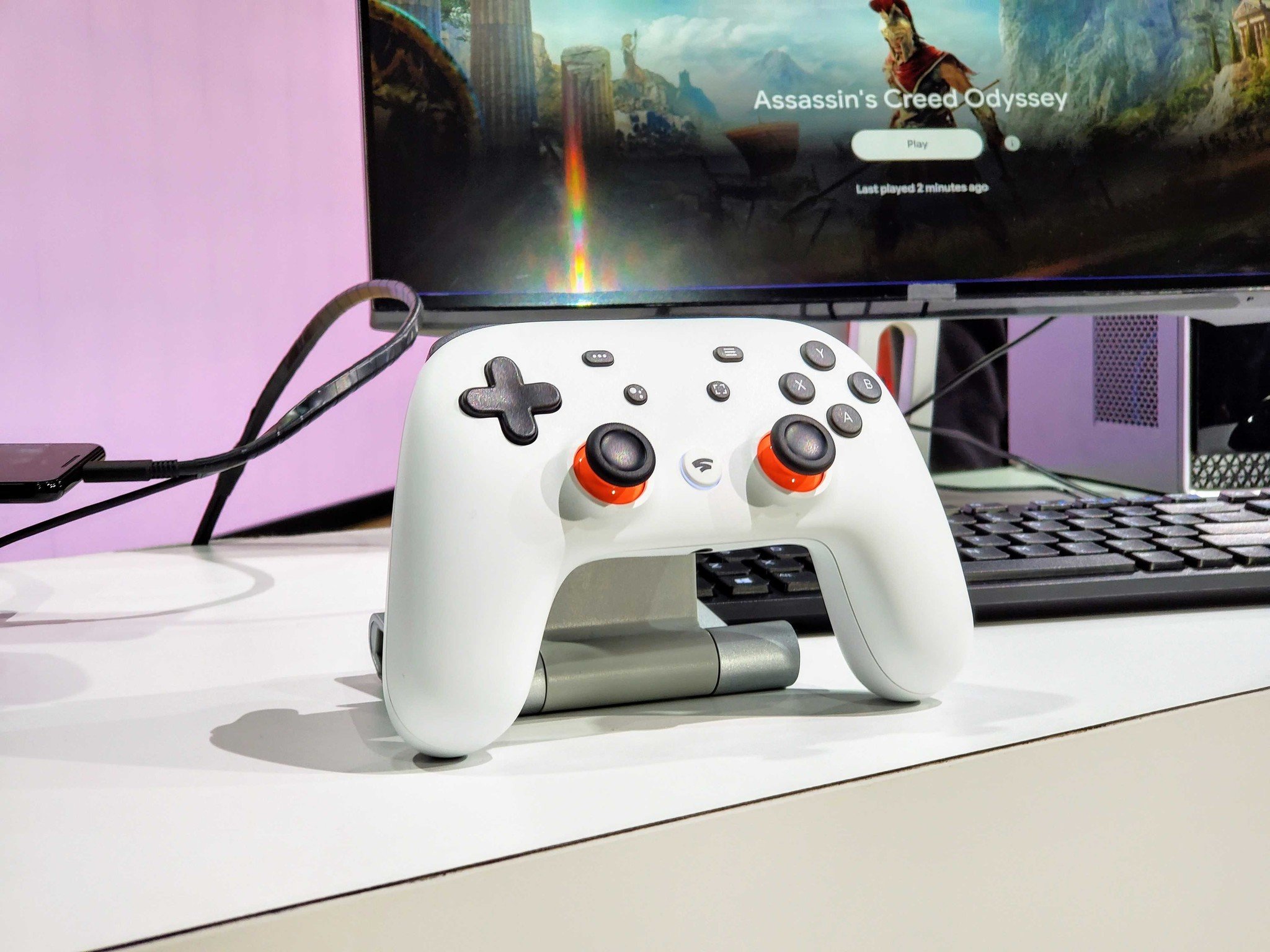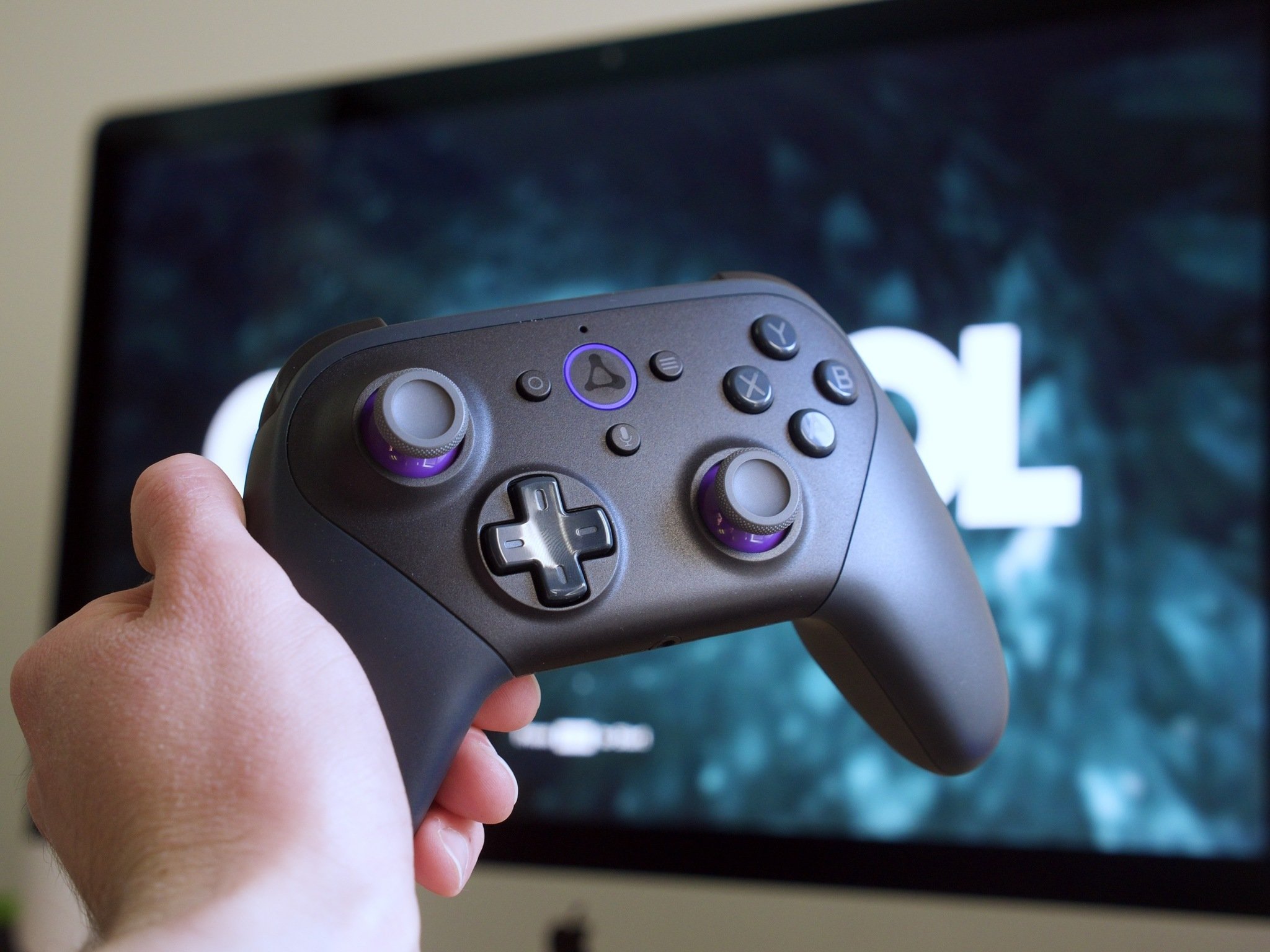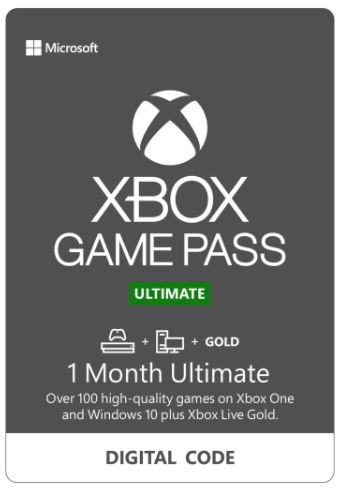Gaming is more accessible than ever, but cloud streaming still has some work to do.
Looking back at this year, it's clear that 2020 has been rough on a lot, if not all, of us in some way or another. While I'm fortunate enough to be able to work from home, I know some lost their jobs, their loved ones, and part of their sanity due to the hellish events in the last several months. Personally, I got hit with a rather bad case of COVID-19 that knocked me for a loop, to put it lightly.
One thing that has remained strong in 2020 is gaming. Being stuck at home saw more people than ever playing video games, making high-profile releases like Animal Crossing: New Horizons even more successful than they might have otherwise been. We've also seen incredible demand for consoles, arguably more than just holiday season fervor. There are more reasons than ever to get into gaming, but with "next gen" here, there's simultaneously more demand than ever, too.
Yet despite the wrenches 2020 threw at everything, Microsoft managed to bring Project xCloud to the masses, Stadia matured, Nvidia chugged along with GeForce Now, and Amazon announced its Luna service. All of these, different in their own ways, offer a means by which you can experience high quality gaming without necessarily needing to have the latest hardware. With all of this in mind, and it sure is a lot to keep track of, it's no surprise that cloud gaming became mainstream in 2020.
The ease of use with cloud streaming is undeniable. Simply load up the relevant app, connect your controller (unless the game supports touch controls), and pick your game. Within minutes, you're playing a console or PC-quality title right there on your phone or Chromebook, nebulous, offsite hardware powering all of those rich experiences. It's actually quite incredible when you think about it, and about how far things have come in the last five or ten years.
A new day is dawning for Android gaming.
Cloud gaming is a huge boon to mobile gaming as a whole, opening a new world via your phone. No longer do you need a gaming phone per se, nor do you need to be tied to a TV or monitor. While Android has some great games — just look at all the ones in our best Android games roundup and our Game of the Week highlights — few of them compare to the Master Chief Collection, for example. There are duplicates, like Dead Cells, but the big libraries now available seriously challenge the best that the Play Store has thus far offered. A new day is dawning for Android gaming.
Despite the promise of cloud gaming, however, there are some hurdles to overcome yet. Most notable among those is the internet itself. Rather, I mean your mobile or broadband connection and how big of an impact those will have on your experience. Data caps are a real thing for many, unfortunately. Your speed or reception may not be ideal, either, possibly leaving you with a shoddy, subpar gaming experience. And even under ideal conditions, the UX can still have problems.
Several people I've talked to have mirrored my own experiences across different services. Even with fast internet, a good router, and strategic positioning, I found that there is still noticeable lag in many games. Sometimes, this is very detrimental to the experience, such as with timing-focused titles like Celeste. For me, the most egregious was my trouble with NieR:Automata, one of my favorite games ever. With that, I had very frequent dropped frames, input lag, and severe declines in quality, both with visuals and audio. This is complicated technology, I know, but these sorts of experiences are frustrating.
One thing that occurred to me early on was that cloud gaming — in this case, cloud gaming with Xbox Game Pass — could be really great for people who can't afford to buy into the console ecosystem. But then I thought about it more, and realized that those people may not even have smartphones or the necessary bandwidth at home (if they have internet at all) to stream games.
It's easy to forget, especially working in this industry, that there are people in this country who don't even have computers at home. In my experience, I've encountered these people in very rural areas, but they can live anywhere. They might rely on free Wi-Fi to get by, apply for jobs, and do their homework. While I'd like to think that cloud gaming isn't just a convenience thing for people like me, we don't live in an ideal world and the people who could really benefit from this gaming paradigm shift may not be able to experience it at all.
Cloud gaming's pitfalls and weaknesses are obvious, and there's only so much we can do.
So how does this tie back into the fact that cloud gaming isn't perfect? I think we have to admit that what I just talked about is an inherent flaw with the concept. Sure, streaming anything chews through a lot of data and more and more people will be placed under the weight of a data cap on their home internet soon, if they're not already. Not everyone has super reliable internet at home, or the best router or home coverage, or unlimited data on their cell phone plan. Lag and general wonkiness are unavoidable right now. These are problems that may always plague the likes of Game Pass, Stadia, and such. But in the end, cloud gaming's pitfalls and weaknesses were obvious from the start, and there's only so much we can do about them.
Though the subscriptions themselves may not be all that bad — I mean, Game Pass Ultimate is one of the best deals in gaming hands down for $15/mo — there are still prerequisites to keep in mind, prerequisites that not everyone has access to. I sound like I'm making a big deal out of this, but I want to stress that although cloud gaming is pretty awesome, it's not perfect for everyone.
Where we go from here is anyone's guess, and I don't know if some of the problems I talked about here will ever be resolved, but it sure looks like cloud gaming is here to stay. And because of that, we'll see some of its faults improve as a whole in the months and years to come. I think it's all up from here. Although things aren't ideal yet, I'm pretty excited about what's to come and I hope more people are able to join the fun.
Subscribe
Xbox Game Pass Ultimate 1-month
From $1/month at Microsoft $15/month at Amazon $15/month at Best Buy
Your key to game streaming
Xbox Game Pass Ultimate is a phenomenal deal — as long as you live in the 22 countries that support cloud streaming. With Xbox Live Gold, EA Play, and access to the entire Xbox Game Pass catalogue, it's easily one of the best valued packages in gaming.
Source: androidcentral



